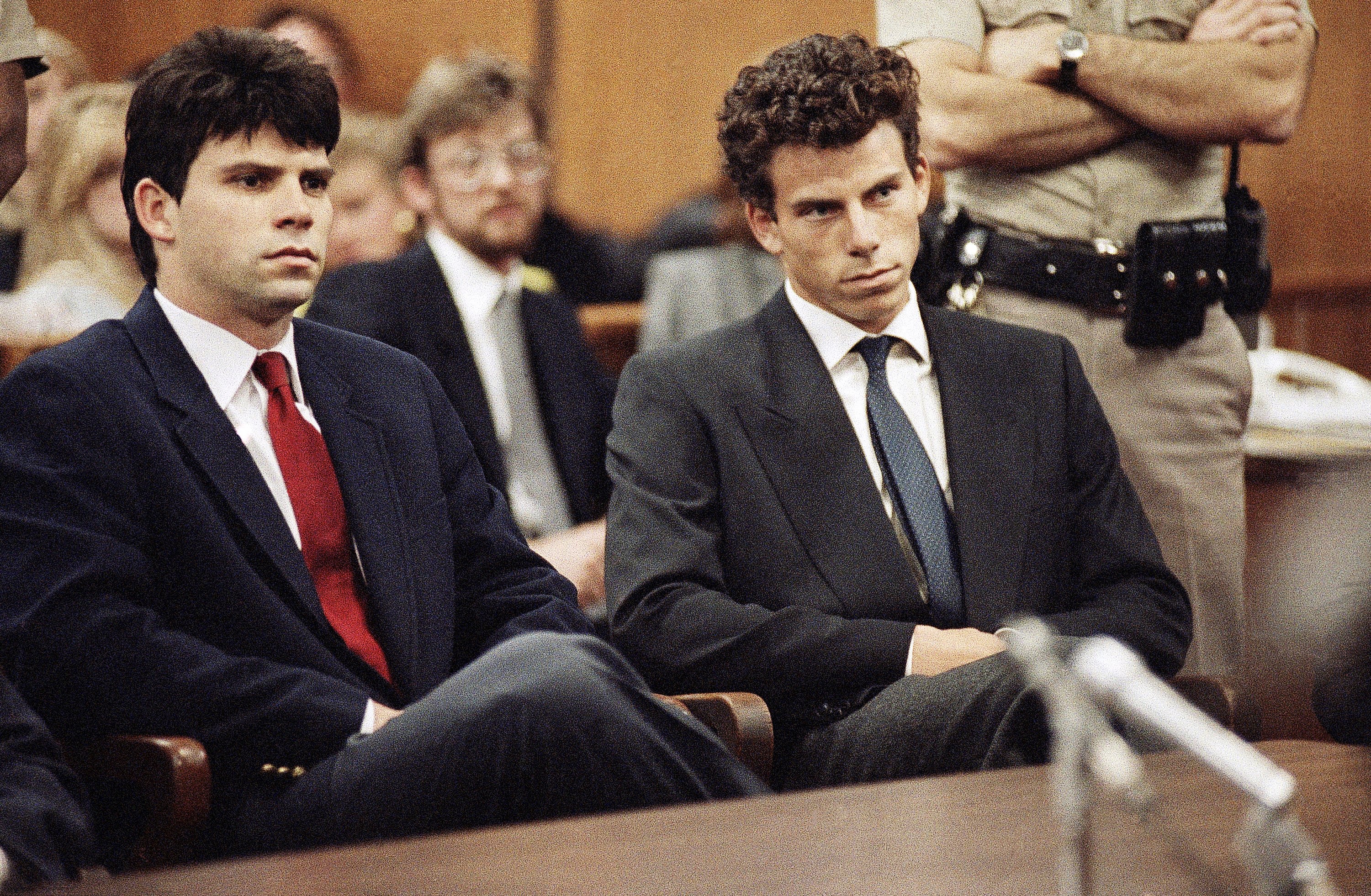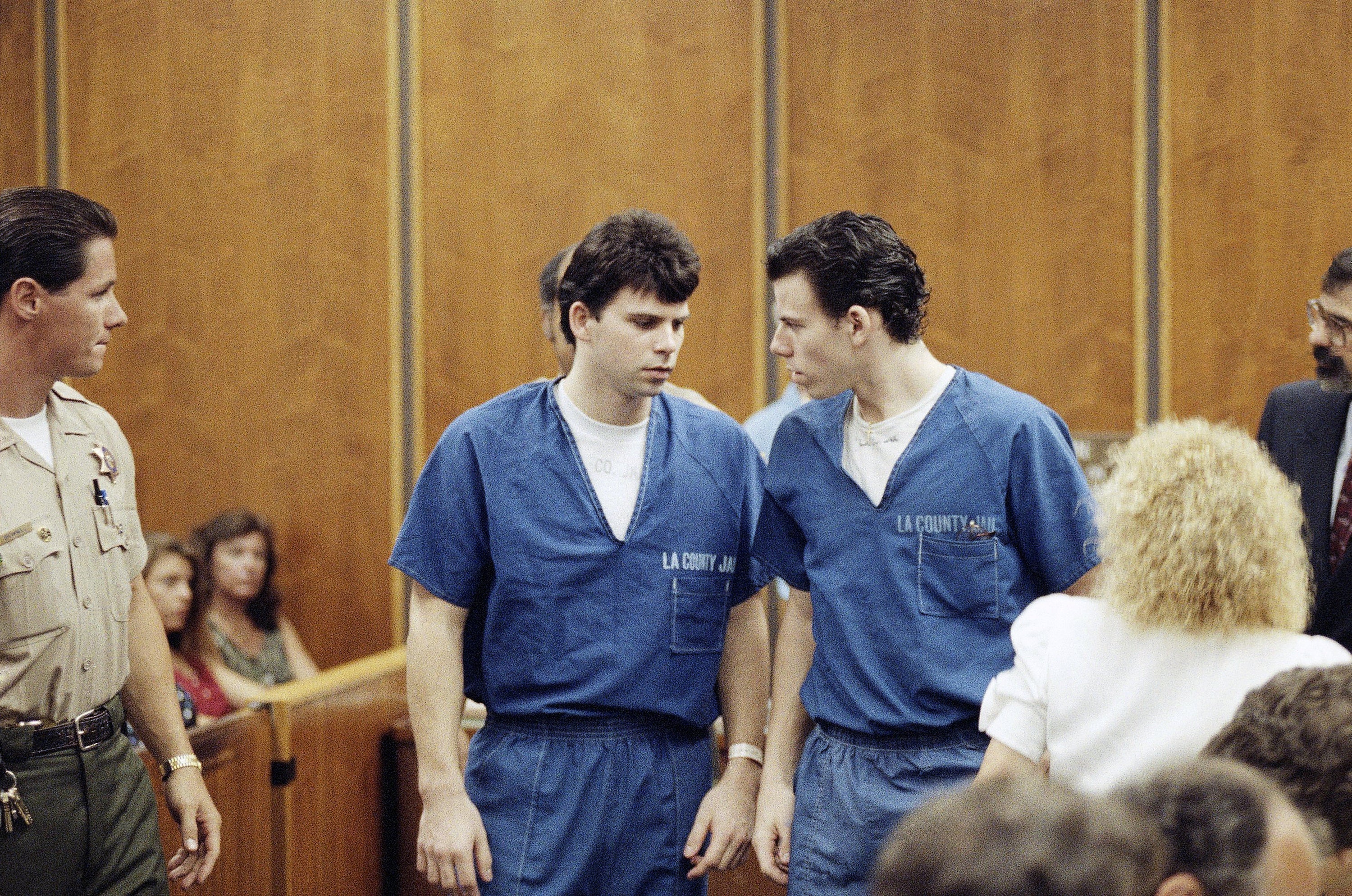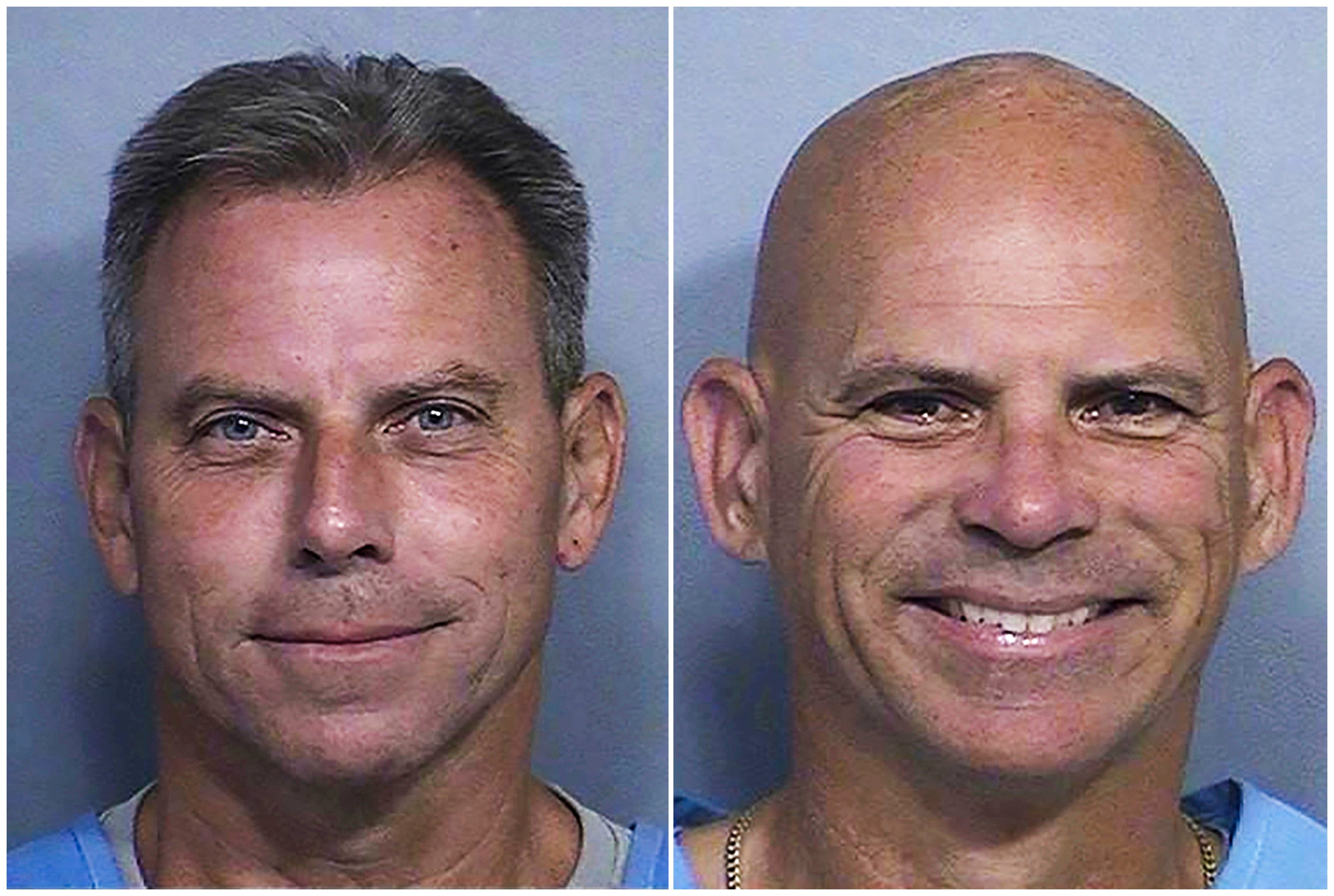
Lyle Menendez has been denied parole after an 11-hour hearing on Friday.
His younger brother Erik Menendez was also denied parole on Thursday after a similarly long hearing — potentially the two longest in the history of California.
They can apply again for release in three years.
Almost 30 years after their convictions for murdering their parents, Lyle and Erik were given the opportunity to present their cases for parole — the closest they have come to securing freedom since then.
They were sentenced in 1996 to life imprisonment for fatally shooting their father, Jose Menendez, and mother, Kitty Menendez, in their Beverly Hills mansion on August 20, 1989. They were 21 and 18 at the time.

Defense attorneys argued the brothers acted in self-defense after years of sexual abuse by their father; prosecutors claimed they murdered their parents for a multimillion-dollar inheritance.
The brothers became eligible for parole in May after a Los Angeles judge reduced their sentences from life in prison without the possibility of parole, to 50 years to life, making them immediately eligible under California law because they were under 26 when they committed their crimes.
It was decided that a panel of parole hearing officers would evaluate the brothers individually. They both appeared by video link from prison on their respective days, with other participants joining from various locations.
In California, if a board recommends parole, there is a 120-day review period for the case. Democratic Gov. Gavin Newsom then has 30 days to affirm or deny the parole.

There was no live feed of the hearing, and only one journalist was allowed to watch and provide reports to other media outlets, which were barred from publishing them until a decision was reached.
James Queally of The Los Angeles Times reports that the hearing was stalled for hours after the California Corrections Department accidentally released a recording of Erik Menendez’s parole hearing to a news outlet.
The family was furious. Many then declined to speak in support of Lyle for fear their recordings would be made public.
Transcripts of parole hearings become public within 30 days, and there was an indication that public records requests for audio recordings of the Menendez brothers’ hearings would be honored, but the victims’ families said they were never informed, which sparked outrage in the hearing.
Lyle told the parole board details about the abuse he claims to have suffered under his parents. He cried, face reddened, while delivering his closing statement. He seemed to still want to protect his “baby brother,” telling commissioners he took sole responsibility for the murders.
“I will never be able to make up for the harm and grief I caused everyone in my family,” he said. “I am so sorry to everyone, and I will be forever sorry.”
The panel started by asking how abuse impacted decision-making in his life.
Lyle described how his father physically abused him by choking, punching and hurting him using a belt.
“I was the special son in my family. My brother was the castaway,” he said. “The physical abuse was focused on me because I was more important to him, I felt.”

He said his mother also sexually abused him, and appeared uncomfortable discussing this with the panel, who asked why he didn’t disclose his mother’s abuse in a risk assessment conducted earlier this year.
Asked if one death made him more sorrowful than the other, Lyle said: “My mother, because I loved her and couldn’t imagine harming her in any way.
He added: “I think also, I learned a lot after, about her life, her childhood, reflecting on how much fear maybe she felt.”
Later, Lyle broke down in tears when recounting how they confronted their mother about Jose Menendez’s alleged abuse of his younger brother.
“I couldn’t wrap my mind around the fact that she knew,” he said.
Heidi Rummel, Lyle’s parole lawyer, was more outspoken during the hearing than the one for Erik on Thursday.
She quarreled with the commissioners over several lines of questioning and whether the panel had access to trial evidence in the case.
The panel asked Lyle whether the murders were planned and about the brothers buying guns.
“There was zero planning. There was no way to know it was going to happen Sunday,” he said, referring to buying the guns as “the biggest mistake.”
“I no longer believe that they were going to kill us in that moment,” he said. “At the time, I had that honest belief.”
He was also asked about the “sophistication of the web of lies and manipulation you demonstrated afterward,” referring to having witnesses lie for them in court, and attempts to destroy his father’s will.

Menendez maintained that there was no plan, only that he was “flailing in what was happening” and didn’t want to go to prison and be separated from his brother.
In closing, Rummel expressed frustration that the hearing spent almost no time on Lyle’s achievements in prison or his efforts to build positive relationships with correctional staff. She noted he never touched drugs or alcohol inside.
“How many people with an LWOP [life without parole] sentence come in front of this board with zero violence, despite getting attacked, getting bullied, and choose to do something different?” she said.
Erik’s parole was denied, with his behavior in prison cited as the main reason, not the seriousness of the crime for which he was incarcerated. These included the use of cell phones, drugs, allegedly aiding a gang in a tax scheme, as well as two instances of violence.
Similarly, the panel zeroed in on Menendez’s use of cellphones in prison as recently as March 2025.
“I had convinced myself that this wasn’t a means that was harming anyone but myself in a rule violation,” Menendez said.
He said correctional staff were monitoring his communications with his wife and family and selling them to tabloids, so he saw cellphones as a way to protect his privacy.
Commissioner Patrick Reardon applauded him for starting a prison beautification project and mentorship programs. But he questioned if the cellphone violations tainted those accomplishments.
“I would never call myself a model incarcerated person,” Menendez said. “I would say that I’m a good person, that I spent my time helping people. … I’m the guy that officers will come to to resolve conflicts.”
The panel noted that a psychologist found that Menendez is at “very low” risk for violence upon release.
“My life has been defined by extreme violence,” he said. “I wanted to be defined by something else.”
For years, the brothers filed petitions for appeals from behind bars, but they were denied by state and federal judges.
The brothers have engaged in educational activities while in prison, participated in self-help classes, and established various support groups for fellow prisoners.
They also launched a prison beautification project inspired by the Norwegian approach to incarceration that believes rehabilitation in humane prisons surrounded by nature leads to successful reintegration into society, even for people who have committed terrible crimes.
Over the years, the Menendez case has continued to fascinate the public, and the brothers became celebrities of sorts. They also were the subjects of true crime shows, including last year’s nine-episode Netflix crime drama Monsters: The Lyle and Erik Menendez Story.




